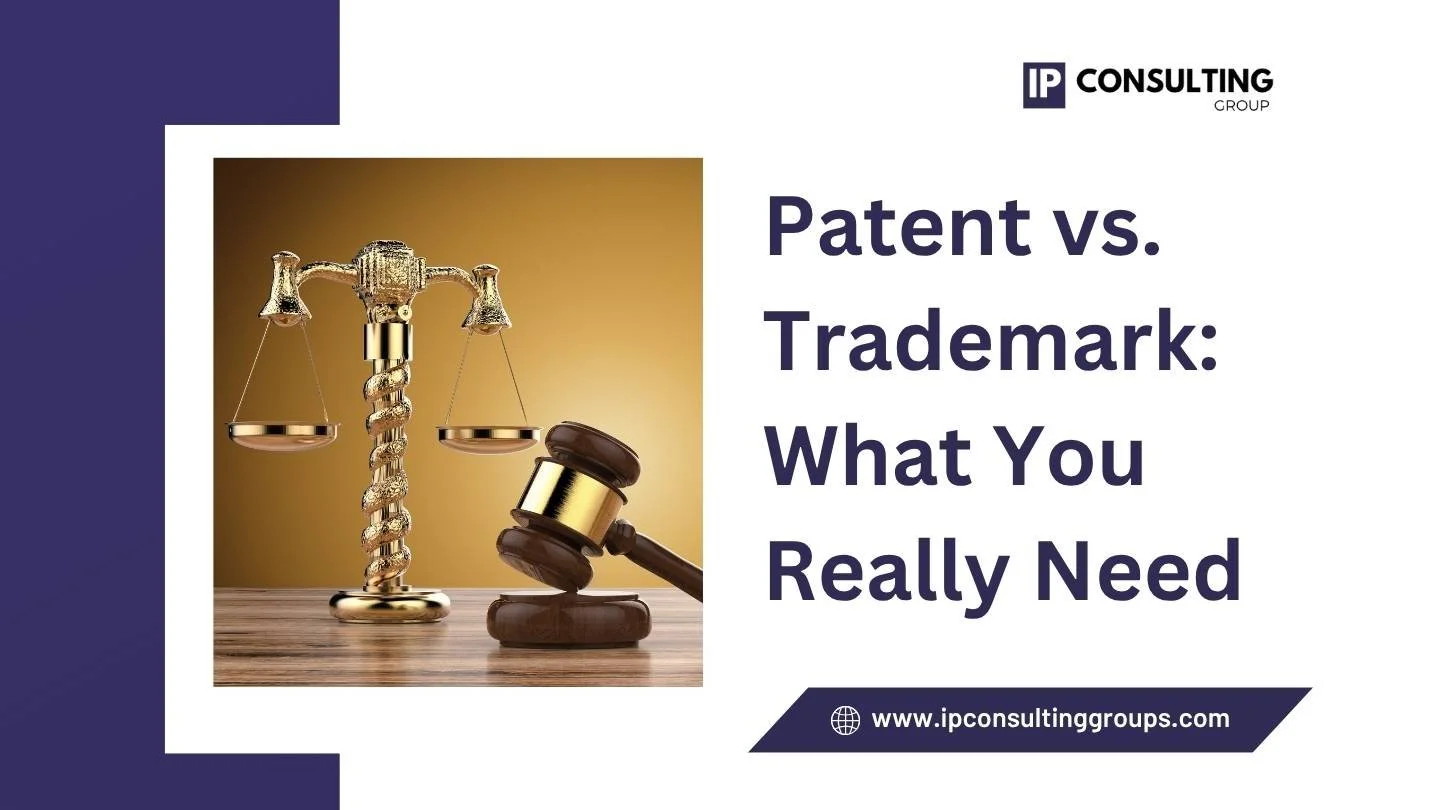Patent vs. Trademark: What You Really Need
Patent vs trademark is one of the most common dilemmas faced by inventors, entrepreneurs, and startups when protecting their intellectual property. While both offer legal safeguards, they serve very different purposes. Understanding what each protects—and which one your business truly needs—can save you time, money, and legal trouble down the road.
What Is a Patent?
A patent is a legal right granted by the United States Patent and Trademark Office (USPTO) that gives inventors exclusive rights to make, use, sell, or license their invention for a limited period, usually 20 years from the filing date. It applies to new, useful, and non-obvious inventions, whether they're processes, machines, compositions of matter, or improvements to existing technologies.
A patent attorney plays a critical role in helping you file and prosecute your patent. From conducting prior art searches to drafting claims and responding to office actions, their expertise is invaluable in securing robust protection for your innovation.
What Is a Trademark?
A trademark is a symbol, word, logo, phrase, or design that distinguishes your goods or services from those of others. Think of Apple’s logo or Nike’s “Just Do It.” These identifiers represent brand value and customer recognition in the marketplace.
Unlike patents, which protect inventions, trademark lawyers help safeguard brand identity. Trademarks can be renewed indefinitely, as long as they remain in use, giving you long-term brand control in your market.
The Key Differences: Patent vs. Trademark
Understanding the differences between a patent vs. trademark can help clarify what type of intellectual property (IP) protection your business needs.
| Feature | Patent | Trademark |
|---|---|---|
| Purpose | Protects inventions and discoveries | Protects brand names, logos, and slogans |
| Term | Usually 20 years from filing | Indefinite with renewal |
| Scope | Functional inventions and designs | Identifiers of origin |
| Cost | Higher due to complexity | Lower, but varies by classes |
| Application Process | In-depth technical and legal steps | Simpler but requires a uniqueness search |
If you're building a tech product, you’ll likely need a patent filing expert. If you’re launching a brand or product line, focus on trademark protection first.
When Do You Need a Patent?
You need a patent when you've developed a new invention, process, or design that gives your business a competitive advantage. Examples include:
New software processes
Biotech Methods and Process
Medical devices
Mechanical Apparatuses
Engineering innovations
A USPTO registered patent attorney will help ensure your application meets the stringent requirements and withstands legal challenges, giving you enforceable protection across the US and potentially abroad.
When Do You Need a Trademark?
You need a trademark if you're introducing a brand, product name, logo, or slogan into the market. It prevents others from using similar branding that could confuse your customers. You should also trademark:
Business names
Product names
Service slogans
Packaging design
Logos or emblems
A skilled IP law firm will perform a clearance search, file your application, and monitor potential infringements, giving your brand a strong foundation from day one.
Do You Need Both?
Often, yes. Startups and entrepreneurs commonly need both patent and trademark protection—especially when launching a novel product under a unique brand name.
For example, a wearable fitness tracker might be patented for its technology and trademarked for its brand and logo. Together, these two forms of protection cover the invention and its market identity.
An experienced provider of intellectual property services can help you align your patent and trademark strategy to your overall business goals.
Mistakes to Avoid
Many businesses make costly errors by either:
Filing for the wrong type of IP protection
Waiting too long to apply
Attempting to DIY complex applications
Ignoring international protections
Avoid these pitfalls by consulting with an IP consultant or attorney early in your product development cycle.
Choosing the Right IP Strategy
A well-rounded IP strategy often includes:
Utility and design patents for innovation
Trademarks for brand assets
Copyrights for creative works
Trade secrets for confidential know-how
Customized IP Protection
Every business is unique. Tailoring your IP protection ensures your innovations and brands are legally secure and commercially valuable.
Still Confused About Patent vs. Trademark?
That’s where we come in.
IP Consulting Group offers complete intellectual property services to help you protect what you create. Whether you’re launching a product, building a brand, or scaling your startup, our team of USPTO-registered patent attorneys, trademark lawyers, and IP strategists are here to guide you.
👉 Contact IP Consulting Group today for a personalized consultation. Let’s secure your innovation and grow your brand with confidence.

